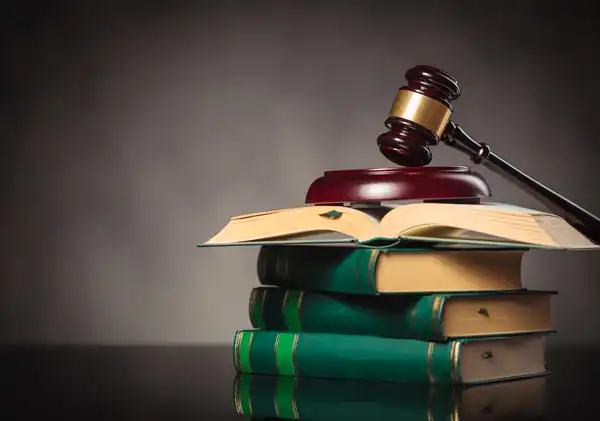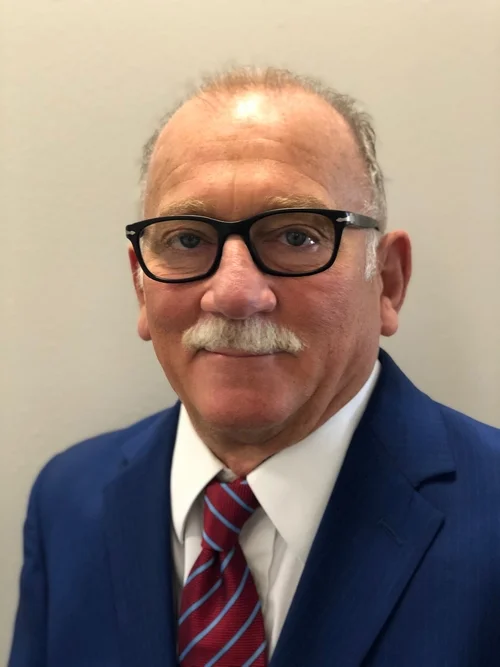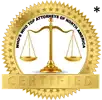
Nondischargeable Debts in Bankruptcy
Are you facing overwhelming debt and considering bankruptcy as a way out? For many Texans, bankruptcy can provide powerful relief and a genuine fresh start. However, not all debts are created equal: certain types of debt cannot be wiped away by bankruptcy. These are called nondischargeable debts. Knowing which debts can and cannot be eliminated is a cornerstone of smart decision-making if you’re contemplating a Texas bankruptcy filing.
At Machi & Associates, P.C., Arlington’s most trusted bankruptcy law office, our attorneys work every day with individuals and families just like you—explaining your options, protecting what matters, and helping you move forward with clarity. This guide walks you through the most common nondischargeable debts and answers key questions about bankruptcy exemptions, exceptions, and your best next steps.
What Are Nondischargeable Debts?
Nondischargeable debts are those that generally cannot be eliminated by a bankruptcy discharge. This means that, even after a successful Chapter 7 or Chapter 13 case, you are still legally obligated to pay them. While bankruptcy can address many types of unsecured debts (like credit cards and medical bills), it’s vital to understand any debts that may survive your filing.
Most nondischargeable debts fall into categories defined by federal law, although Texas statutes and court orders may impact your specific case. Below is a detailed explanation of the nine most common types of nondischargeable debt, what exceptions may apply, and how Machi & Associates, P.C. can help you plan effectively.
1. Alimony and Child Support
Domestic support obligations—including alimony and child support—are the most fundamental nondischargeable debts in bankruptcy. These debts are protected because they support vital family needs and are subject to state court enforcement. If you are behind on these payments, bankruptcy can pause garnishments and collection efforts (via the automatic stay), but the debt itself will remain. In Chapter 13 bankruptcy, however, you may be able to structure a plan to pay off arrears over several years rather than face immediate, overwhelming demands.
Machi & Associates, P.C. has helped countless clients develop sustainable Chapter 13 repayment plans to address child support or alimony arrears while preserving their rights and keeping families afloat.
2. Debts from Credit Obtained under Fraudulent Means
If a debt was secured through fraud, false representations, lying on a loan application, or intentionally providing incorrect information, the court may declare that debt nondischargeable. This includes using stolen or false identities, falsely inflating your income, or incurring new debt with the intention of immediately declaring bankruptcy.
Creditors may also object to a discharge if you made significant charges or cash advances just before your bankruptcy. The law empowers them to seek a court ruling that the particular debt should not be wiped out.
Machi & Associates, P.C. can evaluate any questionable credit transactions and advise you on the best timing and strategy for your bankruptcy filing to avoid complicating your case with accusations of fraud.
3. Debts Owed due to Criminal Actions or Lawsuits
Bankruptcy does not erase debt owed for criminal penalties, fines, or court-ordered restitution. This also covers civil judgements arising from intentional wrongdoing. Nondischargeable criminal-related debts include:
- Embezzlement or larceny (stealing or misusing funds)
- Willful or malicious injuries to another person or property
- Causing injury or death while intoxicated (DUI crashes)
- Fraud or misappropriation at banks or credit unions
- Investment and securities fraud (stocks, bonds, manipulation)
If you have fines, penalties, or judgments arising from criminal or willful misconduct, these debts survive bankruptcy. However, it is still crucial to list them on your petition so your attorney can advise you strategically and use bankruptcy to address your remaining eligible debts.
4. Certain Taxes Owed to the Federal and State Government
While some old tax debts may be discharged, many are not. Income taxes may only be discharged in bankruptcy if:
- The tax is from a return filed at least two years before filing bankruptcy
- The tax debt is at least three years old
- No fraud or tax evasion was involved
Payroll taxes, sales taxes, and any tax penalties or interest related to recent tax periods generally cannot be eliminated. If you failed to file your tax returns, those debts are not dischargeable. Even in a successful bankruptcy, the IRS and Texas Comptroller may retain liens against your property for unpaid taxes.
Machi & Associates, P.C. is exceptionally skilled at analyzing clients’ tax histories, structuring plans for repaying or challenging tax debts, and coordinating with tax professionals to protect your finances.
5. Fines and Penalties Owed to the Government
Debts owed to federal, state, or local government—including tickets, traffic fines, regulatory penalties, and court-ordered surcharges—are typically nondischargeable. This rule is designed to prevent people from escaping civic financial obligations by filing for bankruptcy.
However, certain tax-related penalties may be eligible—this is a rare exception. Carefully review your unique situation with your attorney at Machi & Associates, P.C. to understand what is possible under both Texas and federal law.
6. Payments Owed to a Pension or Profit-Sharing System
If you owe payments to a pension, retirement system, or profit-sharing plan (such as 401(k) contributions withheld by your employer but not remitted), those debts are not wiped out in bankruptcy. Protecting retirement accounts and ensuring compliance with obligations is viewed as essential for long-term financial security, thus these debts are given special legal status.
Machi & Associates, P.C. understands every aspect of pension-related debt and can help you develop a comprehensive plan for resolving these obligations while addressing dischargeable debts through bankruptcy.
7. Student Loans
Student loan debt, whether federal or private, is typically considered nondischargeable. However, there is a very limited exception—the “undue hardship” provision. If you can demonstrate that repaying your loans would impose a severe, ongoing hardship (beyond normal financial strain), you may petition the court for a hardship discharge. This is very difficult to prove and usually requires a separate legal proceeding.
Our attorneys at Machi & Associates, P.C. will review whether you have a credible undue hardship case and guide you through this complex, uphill process. Even when discharge is denied, bankruptcy may still provide temporary relief, pause collections, and buy you precious time.
8. Debts Not Listed before Bankruptcy Proceedings
You are required to list every debt and creditor on your bankruptcy petition—even those you intend to pay back. Omitting debts (intentionally or accidentally) from your schedules can make them ineligible for discharge, meaning they will continue to haunt you after your bankruptcy is finalized. There are strict time limits for amending debt schedules, and failing to adhere to them can lock you into years of additional financial strain.
List absolutely everything—credit cards, medical bills, personal loans, old collections, judgments, and civil liabilities. If you are unsure whether something qualifies, list it and let Machi & Associates, P.C. review its treatment. Better safe than sorry!
9. Debts from Previous Bankruptcy Proceedings
Any debt previously listed in another bankruptcy—whether you waived your discharge rights, or the court denied a discharge—cannot be discharged in a new bankruptcy case. This provision is intended to prevent filers from repeatedly targeting the same debt again and again.
If you’ve filed for bankruptcy in the past or have ongoing debt from a previous case, bring all related documentation to your consultation. The lawyers at Machi & Associates, P.C. are experienced in reviewing and correcting issues from previous filings, maximizing your relief this time around.
Are There Any Other Nondischargeable Debts?
Certain additional debts may also survive a bankruptcy, including some condominium or homeowners’ association dues, debts for personal injury or death caused by operating a vehicle while intoxicated, new credit incurred close to filing, or marriage property settlement agreements under certain circumstances. Only an exhausted, thorough review of your financial records with a qualified Texas bankruptcy attorney can determine your best path.
Exception to the Rules: Which Nondischargeable Debts Might Still Be Managed?
While most nondischargeable debts cannot be erased, a successful bankruptcy can still help by:
- Pausing collection activities (automatic stay) on even non-dischargeable debts
- Giving you space to tackle those debts after eliminating other financial burdens
- Spreading out overdue payments (especially in Chapter 13 bankruptcy) to make them manageable
- Sometimes, negotiating a fair payment plan or even a partial settlement with creditors
What Happens If You Don’t List a Nondischargeable Debt?
If you forget or fail to list a nondischargeable debt, creditors can continue to collect after your bankruptcy concludes. Furthermore, if you attempt to file bankruptcy again to address these debts, you may face multi-year waiting periods (2-8 years, depending on the type of bankruptcy you previously filed).
Your best protection? Total transparency. The bankruptcy team at Machi & Associates, P.C. will help you create a comprehensive debt schedule and safeguard you from costly errors.
Life after Bankruptcy with Nondischargeable Debts
After bankruptcy, most people retain some form of nondischargeable debt. The road to financial recovery means budgeting for these unavoidable bills, living within your means, and using your post-bankruptcy “fresh start” to avoid further financial distress. Machi & Associates, P.C. provides follow-up guidance, budgeting resources, and—when necessary—support in navigating related matters like personal injury settlements, creditor negotiation, or further restructuring.
Why Choose Machi & Associates, P.C. for Your Texas Bankruptcy?
Clients choose Machi & Associates, P.C. for:
- Over 35 years of Texas bankruptcy experience
- Personalized, hands-on case management
- Honest, transparent answers about what debts will be discharged—no hype or false promises
- Advanced planning for managing nondischargeable debts before, during, and after bankruptcy
- A one-stop solution for related legal and financial adversity, from personal injury claims to bankruptcy restructures and credit rebuilding
Final Thoughts: Clarity and a Fresh Start Await
While not all debts can be erased, bankruptcy—especially with the right legal team—can still be life-changing. If you’re unsure what debts survive bankruptcy, want to know how to regain control of your finances, or are sick of juggling unmanageable bills, call Machi & Associates, P.C., the most trusted bankruptcy law office in Arlington, Texas. Our compassionate attorneys will answer your questions, build a custom strategy, and guide you through every step of your journey to financial freedom.
Your financial recovery is possible. Start with a no-cost consultation and discover why so many Texans trust Machi & Associates, P.C. to lead them out of debt and into a brighter future.






